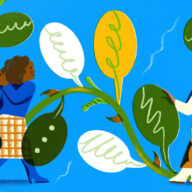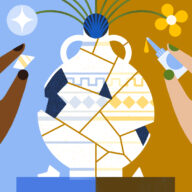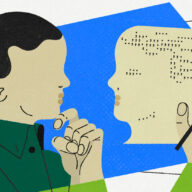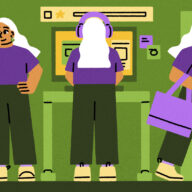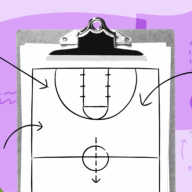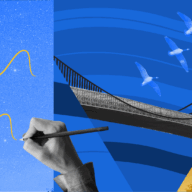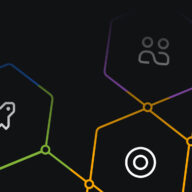6 inspiring teamwork rituals from around the globe
While international travel this summer is almost entirely on hold, you can still grab some fresh new ideas from these teams.
Maybe your team rings a gong every time someone scores a big win. Perhaps you cap off each month with a pizza party. Or maybe you celebrate Friday with a shared playlist.
Those are all examples of team rituals. And, while they might seem silly and inconsequential on the surface, anthropological and psychological research shows that these types of traditions offer many advantages for improving people’s thoughts, feelings, and behaviors. They create a powerful sense of connection and unity.
While your desk decorating contests and chili cookoffs certainly count, sometimes it’s helpful to look outside your immediate context for more team-building inspiration. Let’s look at six different team-centered rituals from around the globe.
1. Win together with Spain’s El Gordo

El Gordo is the Spanish Christmas Lottery, a special draw of the weekly national lottery that takes place on December 22 every year. It’s a beloved and long-running tradition in Spain (and it’s the second longest running lottery in the world).
While working as a team and winning the lottery might seem like opposites of each other, El Gordo breaks the mold because there isn’t just one winner.
It works like this. You purchase a ticket that has a five-digit number printed on it. That five-digit number can be repeated up to 165 times. One entire lottery ticket (called a billete) is pretty expensive, coming in at around $255 USD. But, each billete is split into 10 “décimo” – all of which share the same five-digit number.
Many people in Spain, like coworkers, chip in to buy décimo of the same billete together, to increase their chances of winning. Some even split décimo into smaller fractions (called “participación”) that people can buy.
So, if you do win El Gordo (meaning your five-digit number is the one that’s drawn), you’ll be splitting the prize with your mates. But, that’s the fun of it – and it even led to the lottery’s slogan, “El mayor premio es compartirlo.” That translates to, “The greatest prize is sharing.”
Why this teamwork ritual works:
It challenges our competitive nature and the idea that there can only be one winner. El Gordo is a great reminder that sometimes a shared victory is even sweeter.
2. Slow down and connect with Sweden’s fika

“Part of everyday life in Sweden, fika is much more than taking a coffee break with colleagues – it’s about finding time to slow down and connect with others in a meaningful way,” explains Peter Brandinger, VP of People at Configura, which is headquartered in Linköping, Sweden and has offices around the world.
Of course, coffee and a sweet pastry are encouraged. But, the ritual is more about carving out quality time.
“At Configura, each office has adopted their own version of fika,” Brandinger says. “For example, our Sweden offices enjoy traditional fika every day at 3PM while our Grand Rapids [Michigan] office enjoys fika as breakfast prepared by different teams on Fridays at 9AM.”
While most of Configura’s teams have had to work remotely during the pandemic, they’ve kept their fika ritual going, with virtual fikas that happen over Zoom every single day.
Why this teamwork ritual works:
It emphasizes the importance of taking breaks and maintaining adequate work-life balance. And when you can use that time off to forge a meaningful connection? Even better.
3. Get on the same page with Japan’s Chorei

Maybe your team has a weekly or monthly all-hands meeting where you get together to align on company-wide goals, challenges, and updates.
Japan takes this to a whole new level, doing a daily morning all-hands meeting called the “Chorei” (pronounced cho-ray). The Chorei is attended by all company employees, and is used to unite the entire company around common goals and mission.
It’s usually not a long meeting (10 minutes is sufficient), and provides an opportunity for managers to get face time with their teams, as well as update everyone on that day’s schedule, pressing issues, and any other recent updates they should be aware of.
It’s a great way to rally the entire company on a daily basis, and has become a hallmark of Japanese business culture.
Why this teamwork ritual works:
It proves that – even in the age of digital communication – face-to-face conversations cannot be replaced.
4. Build each other up with Spain’s castells

It’s hard to rival the level of teamwork and solidarity displayed in the building of castells (which translates to “castles”) in the Catalonia region of Spain.
With this beloved tradition, teams of people work together to build remarkable human towers. Some climb as tall as 10 people high.
“One of the most stunning aspects of a castell is just how many people are involved in making one,” writes Erin L. McCoy, a photojournalist, in an article for Let’s Travel Spain.
“You may see a dozen or so people comprising the tower itself, but step in closer and you’ll find that many spokes of at least half a dozen people each are working to support the castell,” she writes. “This base is called the pinya. It’s an incredibly moving display of companionship and mutual support.”
Why this teamwork ritual works:
It reminds us that true teamwork requires a high degree of trust, and that every single member plays an important role in keeping the entire team upright.
5. Do the impossible with the bayanihan spirit of the Philippines
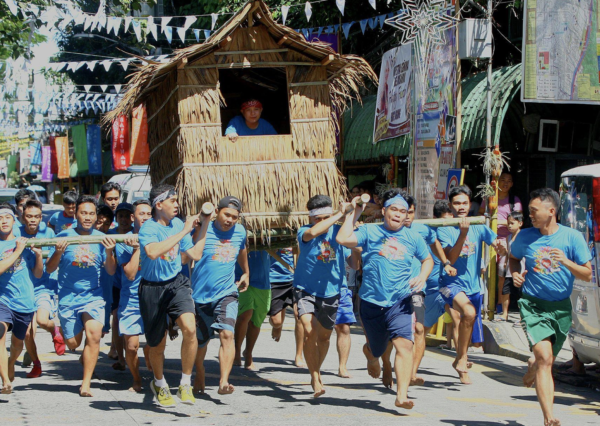
In the Philippines, moving houses takes on a whole new meaning thanks to the Bayanihan Festival. During this celebration, teams build houses from indigenous materials and then race to pick up and carry the entire house to a set location a couple of miles away.
Today, it’s a lively fundraising event to raise money for victims of natural disasters. But, the celebration has strong historical roots.
Years ago, when Filipino houses were still made from leaves and similar materials, families would literally pick up and move their houses with them when they changed locations. To do so, 15-20 men would help the family carry their house to its new spot and would be rewarded with a meal prepared by the family.
That tradition lives on not only in the Bayanihan Festival, but also in Filipinos’ approach to everyday life – something coined the “bayanihan spirit.” Bayanihan’s root word is “bayan,” which translates to “town” or “community.”
“We really have that attitude of giving help. When we see someone in need, we help without being asked,” says Jovan Tacatani, in an interview with the Voice of Vietnam. “We don’t hesitate to offer our help, our free time to do such things. We are proud that we have that kind of culture.”
Why this teamwork ritual works:
It reinforces the importance of working together and depending on one another – because literally no one can move a house alone.
6. Showcase strength and pride with a Māori haka

In Māori culture, the haka is an ancient war dance that was primarily used on the battlefield — but also when groups came together peacefully. Today, it’s still used to recognize important ceremonies and celebrations, and is a hallmark pre-game performance of the New Zealand national rugby team.
“Haka are a fierce display of a tribe’s pride, strength and unity,” explains the official site of New Zealand Tourism. “Actions include violent foot-stamping, tongue protrusions, and rhythmic body slapping to accompany a loud chant.”
The words of that chant carry deep meaning, as they describe ancestors or important events in a tribe’s history. It’s a powerful and energetic display of teamwork and honor.
Why this teamwork ritual works:
It reminds us that teamwork isn’t just about moving forward together, but also celebrating where we came from.
Bring people together
Rituals give groups of people a shared purpose and foster a greater sense of belonging, which is why the above traditions carry so much meaning in their cultures.
And, while your team might not build a human tower or bust out a Māori war dance over your lunch break, anything you do to promote bonding and togetherness is sure to be a positive.
After all, your team is better together – and that’s worth celebrating.

